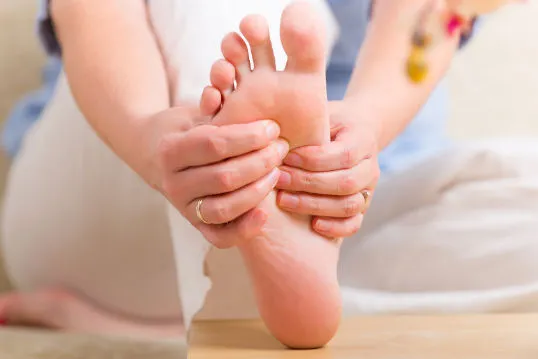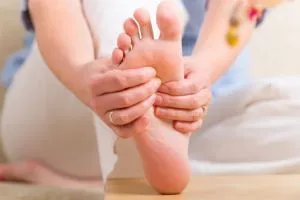
- Share on Facebook58
- Share on Pinterest
- Share on Twitter
According to the CDC, about 12% of American women of reproductive age are infertile. This amounts to about 7.3 million women who may have to deal with the stress and emotional hardship of not being able to conceive after 12 months of trying.
Fortunately, there are many treatments for infertility—including natural ones—which can help women who are infertile but hope to have a baby. One treatment that is growing in popularity is reflexology: the application of pressure on specific points of the body, usually the feet, hands or ears.
Reflexology is an ancient practice going back at least 4,000 years that is still being practiced and studied to this day. Generally speaking, reflexologists believe that certain areas and reflex points—particularly on the feet, hands, and ears—relate to different bodily organs and systems, and that pressing specific points has a beneficial effect on the organs and general health of the person.
Because these ‘outer’ points are thought to connect to the whole body, reflexology is commonly used to treat conditions as widespread as emotional disorders like anxiety and depression to hormonal imbalances, digestive disorders, and chronic pain. It is also used often to relieve migraines, headaches, and stress—one of the key factors affecting fertility.
Although many holistic therapies like reflexology have not been studied thoroughly, some recent research has suggested that its benefits may not only be imagined or theoretical. UK Reflexologist Janice Holt is currently studying the effects of reflexology on couples with infertility problems, and her results have been both surprising and encouraging.
 Holt told the BBC that after regular reflexology sessions, “Patients can report feeling 100% more positive, relaxed, sleep better, have improved sex drive, more regular cycles, better flow, less pain and a percentage of women have successfully conceived within a course of treatment.”
Because of her success, her research is now being funded and supported by the fertility unit at Derriford Hospital Plymouth and the complementary medicine department at the University of Exeter in the UK.
Holt told the BBC that after regular reflexology sessions, “Patients can report feeling 100% more positive, relaxed, sleep better, have improved sex drive, more regular cycles, better flow, less pain and a percentage of women have successfully conceived within a course of treatment.”
Because of her success, her research is now being funded and supported by the fertility unit at Derriford Hospital Plymouth and the complementary medicine department at the University of Exeter in the UK.
However, Holt cautions that reflexology is not “a magic cure-all.” The treatment “cannot guarantee a pregnancy, cannot unblock fallopian tubes, treat chlamydia or cure endometriosis,” all of which are common causes of infertility. What it does work toward, however, is “bringing the body into a state of balance, encouraging the body’s systems to work to their optimum.” She also explains that the treatment can have clear emotional benefits: “For many women the stress and anxiety attached to failing to conceive can be overwhelming and the treatment can help them feel more positive, relaxed and deal with their fertility issues in a more positive manner.
So, if you are one of the many women who feel like they have tried everything, reflexology may be the missing link you need to relax, de-stress, balance your body and hormones, and maybe even conceive!
-The Alternative Daily
Sources:
http://www.bbc.co.uk/devon/community_life/features/ivf_reflexology.shtml
http://www.dailymail.co.uk/femail/article-2944746/Reflexogist-helped-couples-conceive-300-miracle-babies-ancient-Chinese-massage-technique.html
http://www.selfgrowth.com/articles/Reflexology_Positive_results_when_use_for_Infertility.html
http://www.takingcharge.csh.umn.edu/explore-healing-practices/reflexology
- Share on Facebook58
- Share on Pinterest
- Share on Twitter

